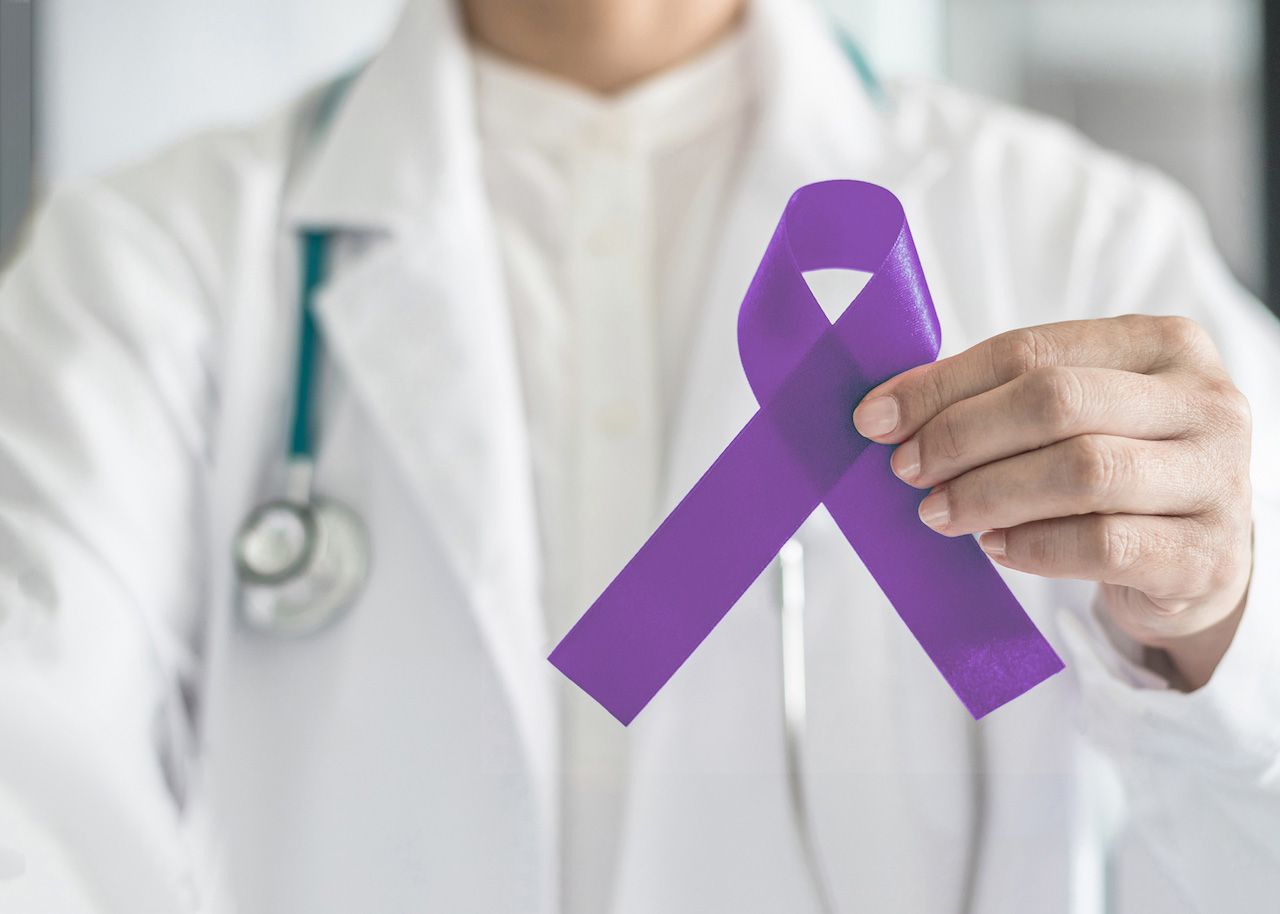
Human chorionic gonadotropin (hCG) is best known for turning pregnancy tests positive, but extremely high levels may point to cancer. Find out how doctors use this test to assist them in making a diagnosis and what levels are considered normal or high.
What is hCG (Human Chorionic Gonadotropin)?
Definition
Human chorionic gonadotropin (hCG) is a hormone well-known for initiating a pregnancy. Its main function is to support the development of a newly fertilized egg [1].
It increases progesterone and helps grow blood vessels in the uterus, which provides a blood supply and nourishment to the growing fetus [2].
This makes hCG useful as an indicator of pregnancy. Most pregnancy tests will check for the presence of hCG either in the urine or blood. To learn more about how hCG is used in a pregnancy test, check out this post [1].
The fact that testing hCG levels can help detect certain kinds of cancer – including ovarian cancer in women and testicular cancer in men – is not as well-known [2].
hCG and Cancer
Types of hCG and Cancer
5 different types of hCG exist and they all work together, but each has a unique structure and function (sulfated hCG, hyperglycosylated hCG, hyperglycosylated hCG free β-subunit, and hCG free β-subunit) [1].
The cells in your body naturally go through a process called apoptosis, whereby certain old or damaged cells die off; this process is essential to maintain good health. Some forms of hCG (hyperglycosylated hCG and the free β-subunit types) can block apoptosis, leading to rapid cellular growth [2, 1].
Blocking apoptosis serves an important function in pregnant women: it promotes the development and growth of the embryo and placenta [2, 1].
However, high hCG levels outside of pregnancy can stimulate the growth of cancers that affect the uterus, placenta, and testicles. On top of that, some cancer cells themselves can release β-hCG, which can further accelerate cancer growth [2, 1].
Tumors that Produce hCG
Many different kinds of tumors produce hCG, especially the free β-subunit type of hCG. High levels of β-hCG may indicate a particularly aggressive form of cancer. For this reason, hCG and β-hCG levels can help diagnose and monitor several types of cancer [3].
About 10-30% of most cancer patients (like those with lung, breast, or prostate cancer) have elevated levels of hCG. However, hCG tests are most useful for diagnosing ovarian and testicular cancer, which almost always cause high hCG levels [3, 4].
It’s true that high hCG levels can produce a positive pregnancy test result in men with certain types of cancer. One such case was widely covered in the media: a teenage boy took a pregnancy test as a joke, got a positive result, and was diagnosed with testicular cancer afterward.
However, home pregnancy tests are in no way a reliable way to diagnose any type of cancer. If your doctor suspects cancer is increasing your hCG levels, they’ll run a sensitive blood test.
On the other hand, if you are a healthy woman trying to conceive and you got a positive pregnancy test result, you probably don’t have to worry about ovarian cancer. In any case, your doctor will run additional tests afterward to confirm your pregnancy and make sure it’s progressing normally.
Normal & High Levels
In healthy adults, hCG and β-hCG levels are normally very low. For non-pregnant women, normal levels are [3]:
- hCG: <5 mIU/mL
- β-hCG: <0.04 mIU/mL
For men, normal levels are [3]:
- hCG: <2 mIU/mL
- β-hCG: <0.05 mIU/mL
However, these reference ranges may vary depending on the health organization. Also, some labs may set the upper limit of hCG to 10 mIU/mL because their tests cannot detect such low levels of hCG [3, 4].
There is also no set value for a cancer diagnosis. Generally speaking, any level above normal may indicate cancer. Often it’s not hard to tell, since hCG levels can skyrocket to 300-10,000 mIU/mL in some types of cancer [3, 4].
If your hCG or β-hCG levels are high, your doctor may pursue more aggressive or longer treatment options [3, 4].
Takeaway
Ovarian and testicular cancer can dramatically increase hCG levels. Other cancer types, such as breast and lung cancer, may also increase hCG blood levels. High hCG levels further feed the growth of tumors and the blood vessels that feed them.
Pregnancy tests should never be used to screen for these cancer types. Your doctor will check your hCG levels with a sensitive blood test if he or she suspects you have cancer.

